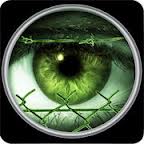
People respond to this question in many ways. When I was growing up, there was no Internet and so there were no smart phones, email or Facebook. Since the proliferation of many information-based technologies, being connected to others is generally through electronic means. Being connected to others through these various information-based technologies means instant communication through Wi-Fi and other Internet-based communication systems. We’re even connected to satellites orbiting the Earth through our cell phones and our multi-media systems. Today in 2013, when somebody asks you how you are connected, it’s generally understood to be through some social media connection. Being able to participate in webinars and teleseminars with people from all over the country, or throughout the world is now done every day through our computers and smartphones. To me this is totally amazing and it’s through these electromagnetic fields of information and various frequencies that we are able to share all this information instantly. In the highly industrialized first world countries as well as emerging third world countries, this is becoming the social norm as accessibility to all of these various information-based technologies is spreading like wildfire. It is redefining the human experience and culture at large.
When I was in my 20s and 30s, “being connected” was a reference to one’s spiritual relationship to others and the universe. In the 60s, many spiritual teachers from India and Japan and even Tibet started coming to the United States to teach. Gurus, yogis and spiritual masters began to emerge onto the American cultural scene.Read More »How Are You Connected?





 Energy psychology is proliferating internationally as a treatment model for successfully addressing psychological distress. One of the most widely recognized energy psychology interventions, EFT, is becoming well known all over the world. In London, there are regular international conferences featuring the many therapeutic applications of EFT—just EFT! Recently, the American Psychological Association accepted energy psychology as a legitimate therapeutic modality worthy of receiving continuing education credits for related workshops. This reflects a growing trend of increasing acceptance for what is commonly regarded as complementary and alternative medicine (CAM) approaches that continue to gain popular acceptance. Energy psychology addresses the human vibrational matrix. This includes the biofield, the chakras and the acupuncture meridians. This is a far cry from talk therapy in the evolution of psychotherapy and will eventually be the standard taught in graduate schools of psychology throughout the world. Why? Because energy psychology works so rapidly and effectively.
Energy psychology is proliferating internationally as a treatment model for successfully addressing psychological distress. One of the most widely recognized energy psychology interventions, EFT, is becoming well known all over the world. In London, there are regular international conferences featuring the many therapeutic applications of EFT—just EFT! Recently, the American Psychological Association accepted energy psychology as a legitimate therapeutic modality worthy of receiving continuing education credits for related workshops. This reflects a growing trend of increasing acceptance for what is commonly regarded as complementary and alternative medicine (CAM) approaches that continue to gain popular acceptance. Energy psychology addresses the human vibrational matrix. This includes the biofield, the chakras and the acupuncture meridians. This is a far cry from talk therapy in the evolution of psychotherapy and will eventually be the standard taught in graduate schools of psychology throughout the world. Why? Because energy psychology works so rapidly and effectively.